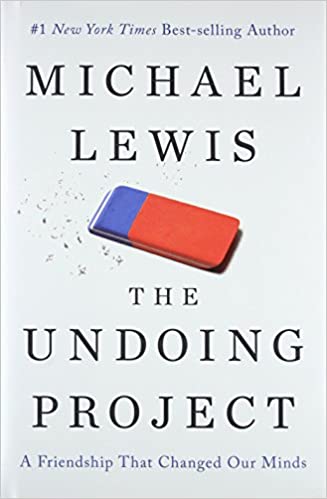Michael Lewis – The Undoing Project Audiobook (A Friendship That Changed Our Minds)

This is among Michael Lewis’s finest publications yet. The difficulty is to tell the story in a manner that describes the behavior prejudices without the demand for technological discussion. Lewis achieved this relatively well.
Early in the book he covers the difficulty of hunting gamers in specialist sporting activities leagues. He keeps in mind the popularity of the halo impact, where scouts see desirable solitary features as well as let that perception impact the analysis of various other qualities. The Undoing Project Audiobook Free. This is later on extra extensively categorized as representativeness, among a number of heuristics individuals use to choose with restricted details. Representativeness involves the early characterization and also categorization of an object/event/individual based upon some attribute that can be easily recognized. Other heuristics mentioned include anchoring, when one takes brand-new info and also simply makes adjustments to their first reasoning; availability, when one appoints excessive weight to the info easily available to them; as well as simulation, an emotional bias involving the simplicity with which one can psychologically simulate choices to truth. While it is acknowledged that heuristics are oftentimes practical rules of thumb, they can occasionally result in systematic error.
Representativeness is explained making use of the ‘Linda trouble’, which asks whether it is more probable that Linda is a financial institution cashier or a financial institution teller and a member of a feminist company, when all you’re told is that Linda is a feminist. Numerous participants picked the latter alternative, even though the first option consists of the second alternative by means of a less limiting summary. To put it simply, if the chance of Linda being a financial institution teller is 10%, and also the likelihood of her being in a feminist organization is 99%, then the first option has a 10% possibility of being correct, while the second has a (10% x 99%) possibility of being proper (which is less than 10%). Availability predisposition is likewise explained using an issue that asks whether a certain book has more words with the form _ _ _ _ ing or _ _ _ _ _ n _. Because words finishing in ‘ing’ are easily considered, participants picked the first option, overlooking the fact that the 2nd option includes all words that additionally meet the first option. Schedule is explored further, as Lewis describes exactly how Kahneman and Tversky strike professionals for over-extrapolating from tiny example sizes.
Consumer decision prejudices are discussed also. First, it is clarified just how individuals do not show up to update probabilistic end results utilizing a Bayesian procedure in real life decision-making. Testing has actually also revealed the truth that human intake choices do not follow laws of transitivity. To put it simply, if a customer favors A to B and also B to C, they may often additionally state they choose C to A. They inevitably describe this by damaging A, B, and C down right into private functions, and analogize an individual acquiring A to them actually acquiring a bundle of features stood for by A. In so doing, they recognized that not only are tiny preferential differences particularly features practically neglected, but specific contrast is usually not possible considering that various things have different packages of attributes.
Possibly the greatest accomplishment of Kahneman as well as Tversky was difficult and also supplying a choice to Bernoulli’s utility concept. Utility concept effectively described particular habits by classifying people as either danger forgiving, risk neutral, or risk averse. If confronted with picking between $50 free of cost or taking a 50% chance of winning $100 or $0, a risk neutral individual would be uncaring to the decision. A danger averse person would certainly take the free $50 and prevent the chances, considering that the utility they get from the first $50 is greater than that of the second $50. Therefore individuals do not depend on pure probabilistic reward odds. However, utility theory has actually not stood up under centuries of analysis. Michael Lewis – The Undoing Project Audio Book Online. Kahneman and Tversky included in this topic with the principle of regret hostility, where people put excessive weight on potential unfavorable results, and after that once again with loss aversion, where people will in fact want to take even more threat (as a risk forgiving individual would in Bernoulli’s structure) when faced with the very same decision as above however with losses as opposed to gains. In other words, if picking between a guaranteed $50 loss or taking a 50% possibility of losing $100 or $0, an individual that is risk averse on the gains side might select to be danger tolerant on the loss side.